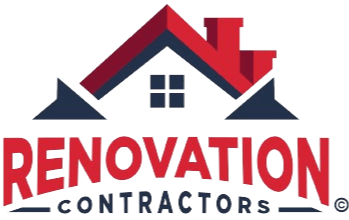Can the Owner Supply Materials for a 203k Renovation Project?

Can the Owner Supply Materials for a 203k Renovation Project?
https://www.203ksoftware.com/
Posted September 15, 2024
A common question in 203k renovation projects is whether homeowners can supply materials for contractors to install. The short answer is: generally, no. Here's why:
- HUD Requirements
HUD regulations stipulate that we must have sufficient funds in the project to complete all work without relying on owner participation. This ensures the project can proceed even if the owner's circumstances change. - Appraisal Considerations
Appraisers don't assign value to owner-provided items. For major components like kitchen cabinets or countertops, this could result in a lower appraised value, potentially jeopardizing loan approval. - Loan Amount Management
While some owners hope to reduce their loan amount by providing materials, this approach isn't recommended. Instead, increasing the down payment is the proper way to lower the loan amount. Simply put more money down. We had a client have the contractor do over a hundred thousand dollars worth of work outside our $30,000 scope of work. It made the contractor look bad for taking so long to complete the smaller scope of work. Had the same client put that money down she would have saved the private mortgage insurance (PMI) which was about $500 per month and we could have had a say in the completion of the work. Instead when that work was being done the client called us to see if we could help get the work done but it was outside our perview. - Contractor Markup Concerns
Owners sometimes want to avoid contractor markups on materials. However, these markups often cover important aspects like material coordination, delivery, and warranty responsibilities. The contractor would still be entitled to the markup on those items. - Once or twice over the years owners would purchase the kitchen cabinets from Ikea and think they have saved a bunch of money... this is unacceptable by everyone. FHA cabinets must be SOLID WOOD and never pressed wood.
- Project Integrity
When owners bring materials to the job site, it can create a false sense of project progress and complicate the oversight process.
Exceptions and Clarifications:
- Minor, Non-Value-Adding Items: In cases like a washer and dryer where the owner provides the appliances and the contractor only installs hookups, it's generally not an issue. These items don't affect property value and wouldn't be included in the scope of work.
- Separate Purchases: If homeowners wish to purchase items separately, these should be handled outside the 203k loan process and installed after the renovation is complete.
Best Practices:
- Full Contractor Responsibility: It's best for the contractor to handle all material procurement and installation within the scope of work.
- Clear Communication: Ensure all parties understand the regulations and reasons behind these restrictions.
- Post-Renovation Additions: Homeowners can plan for personal touches or specific items to be added after the 203k work is completed and the loan is closed.
Remember, these guidelines are in place to protect all parties involved and ensure smooth, compliant 203k renovations. Always consult with your 203k consultant or lender for the most up-to-date information on program requirements."
#contractors, #home inspectors, #203k consultants

